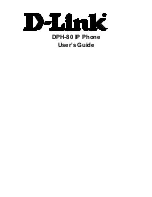
OSPF Interfaces
381
To configure a router to be chosen as a designated router, you must
understand how the designated router is elected:
■
The routing interface that has the highest routing priority within an
area is elected as the designated router using the Hello protocol.
■
In case of a tie — two or more routers having the same highest
routing priority — the router with the highest router ID is chosen as
designated router.
■
After a designated router is chosen, the same process is used to elect a
backup-designated router, with the existing designated router
excluded from the election.
Therefore, to designate a router to be elected as the designated router for
an area, configure the router with a higher router interface priority than
the other routers within the same area. If you want to prevent certain
routers within an area from serving as a designated router or backup
designated router, configure those routers with a router priority of “0,”
because interfaces with a router priority of “0” are not eligible for
designated router and backup designated router election.
When a router interface within an area first comes online, it determines if
a designated router exists for the area. If one exists, the new router
accepts the designated router regardless of its own router priority.
Therefore, if you want to change the designated router for an area,
configure the router that you want to serve as the new designated router
to have a higher priority than other routers in the same area. The next
time that the election process is initiated, the router that has the highest
router priority is elected as the designated router for the area.
Area ID
The area ID associates the router interface with an OSPF area. By default,
all OSPF interfaces that you create on the system belong to the backbone
area (0.0.0.0). If you want to change this association, specify a different
area ID for any or all interfaces on the system.
Cost
The interface cost parameter reflects the line speed of the port. Although
the system calculates a default cost based on the module media type, you
can set the cost manually to a different value. In most cases, you can
accept the default value that the system sets.
Summary of Contents for CoreBuilder 3500
Page 44: ...44 CHAPTER 2 MANAGEMENT ACCESS ...
Page 58: ...58 CHAPTER 3 SYSTEM PARAMETERS ...
Page 86: ...86 CHAPTER 5 ETHERNET ...
Page 112: ...112 CHAPTER 6 FIBER DISTRIBUTED DATA INTERFACE FDDI ...
Page 208: ...208 CHAPTER 9 VIRTUAL LANS ...
Page 256: ...256 CHAPTER 10 PACKET FILTERING ...
Page 330: ...330 CHAPTER 12 VIRTUAL ROUTER REDUNDANCY PROTOCOL VRRP ...
Page 356: ...356 CHAPTER 13 IP MULTICAST ROUTING ...
Page 418: ...418 CHAPTER 14 OPEN SHORTEST PATH FIRST OSPF ...
Page 519: ...RSVP 519 Figure 94 Sample RSVP Configuration Source station End stations Routers ...
Page 566: ...566 CHAPTER 18 DEVICE MONITORING ...
Page 572: ...572 APPENDIX A TECHNICAL SUPPORT ...
Page 592: ...592 INDEX ...
















































